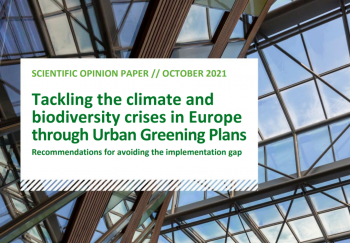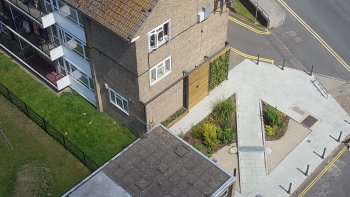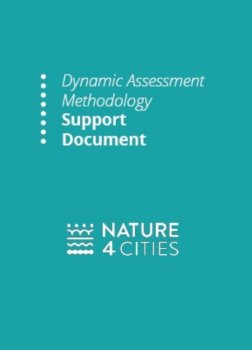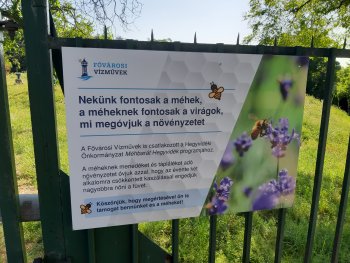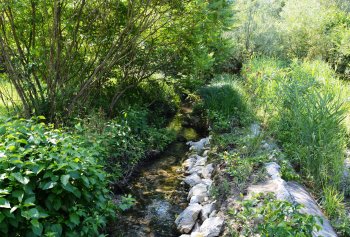Mapping the Research Landscape of Nature-Based Solutions in Urbanism
Nature-based solutions (NbS) are an innovative concept that mimics the processes of natural ecosystems, popularized principally in the European Union. With a substantial body of literature amassed since the term’s inception in 2015, there is a need to systematically review existing literature to
Water Challenges and Nature-Based Solutions
Growing urban populations around the world are causing a rising demand for water. Concurrently, changing climate is increasing extreme events in cities, from drought to floods, with severe social and economic consequences. This calls for extensive renewal and expansion of urban water infrastructure
Report: Nature-based solutions for urban resilience: A citizen science-based research programme
This report by Earthwatch Europe shows how urban Nature-based Solutions (NbS) are a sustainable tool for building resilient cities. The report highlights how science and community engagement can provide key answers to support a sustainable future, providing the first insights for planners,
Leveraging Public Programmes with Socio-Economic and Development Objectives to Support Conservation and Restoration of Ecosystems
The Strategic Plan for Biodiversity 2011-2020 recognises that biodiversity underpins ecosystem functioning and the provision of ecosystem services that are essential for human well-being. The fourth Global Biodiversity Outlook underscores that biodiversity is still being lost and ecosystems
EmissionFactors.com
EmissionFactors.com taps into the most powerful environmental database in the world, powered by Ecometrica. Over the years, we've spent thousands of hours searching for and cataloguing emission and conversion factors and still do it on a regular basis. The accuracy of our data is very
Action on invasive alien species should better anticipate climate change effects on biological invasions in Europe
The policy brief entitled “Action on invasive alien species should better anticipate climate change effects on biological invasions in Europe” is based on the combined results of the BiodivERsA-funded WhoIsNext, INVAXEN and Resipath projects. This 4-page brief presents key recommendations on
TELEPÜLÉSI KLÍMAADAPTÁCIÓ: Klímaadaptív gyepgazdálkodás a városban
A Veszprém város önkormányzatának megbízásából elkészült dokumentum a város és a természet kapcsolatát, valamint a város működésének hatását a klímára mutatja be. Összefoglalja az urbanizáció történetének következményeit, vagyis azt, hogy a népességrobbanás, a beépítettség növekedése és a termelési
OpenNESS Synthesis paper: Non-monetary valuation
To increase the applicability of NMV it is necessary to clarify the boundaries and the terminology of the field, and address considerations with regard to the context-specificity of non-monetary techniques.
Urban Nature: A Shared Solution to the Climate and Biodiversity Crises?
Cities are increasingly being recognised as key arenas for governing and tackling global environmental challenges, including the interlinked climate and biodiversity crises. Yet urban areas have historically exacerbated these issues. Cities are estimated to account for 60-75% of global GHG
Tackling the climate and biodiversity crises in Europe through Urban Greening Plans: Recommendations for avoiding the implementation gap
To systematically bring nature back to cities, the EU Biodiversity Strategy calls upon cities with over 20,000 inhabitants to develop Urban Greening Plans (UGP) by the end of 2021. UGP present a unique opportunity for the systematic integration of urban green infrastructures in urban planning
Nature-based solution evaluation indicators: Environmental Indicators Review
A report comprising reviews of core and recommended evaluation indicators for evaluating the benefits, co-benefits, and trade-offs associated with nature-based solution indicators. Review comprises those indicators selected within the Connecting Nature WP1 indicators scoping coproduction exercise
Nature4Cities - NbS Dynamic Assessment Methodology Support Document
The evaluation of the environmental benefits of NbS is one of the key solutions paving the way for resilient cities, and to strengthen urban planning strategies. A strong need of new governance, business, financing models and economic impact assessment tools for sustainable cities with NbS (urban
Identifying and analyzing stakeholders of ecosystem services
A short presentation showing an overview of the way stakeholders where identified and weighted at the urban hybrid dune exemplar in Barcelona, forming part of the OPERAs project.
BIODIVERZITÁS: Hogyan váljunk méhbarát kerületté, településsé?
A közzétett tudásanyagokat Budapest XII. kerülete, Hegyvidék Önkormányzata készítette a Méhbarát Hálózat tagjaival együttműködésben, a BeePathNet nemzetközi projekt keretén belül. A publikált magyar nyelvű anyagok a lakosság érzékenyítésére és tudásátadásra szolgálnak, amivel a kerület szeretné a
Multibenefit Flood Retention
Guidelines for the development of a flood retention reservoir fostering water quality, biodiversity, local amenity value & environmental education.
Evaluating Ecological Restoration Success: A Review of the Literature
Assessing the success of ecological restoration projects is critical to justify the use of restoration in natural resource management and to improve best practice. Although there are extensive discussions surrounding the characteristics that define and measure successful restoration, monitoring or
- Document
OPERAS D4.7 Implementation Guidance
D4.7 developed guidance for the design and implementation of schemes that can use the NC/ES concepts: Payment for Ecosystem Services (PES); Offsetting; Standards, Certificates, Reporting, Labelling and Procurement; Spatial Planning, Regulation and Development Control; and Nature Based Solutions.
Method Factsheet - Revised Universal Soil Loss Equation (RULSE)
The Revised Universal Soil Loss Equation (RUSLE) is an empirical erosion model recognised as a standard method to calculate the average risk of erosion on arable land. It developed from the Universal Soil Loss Equation (USLE) developed in the US Department of Agriculture and has other similar
Restoration Ecology: Interventionist Approaches for Restoring and Maintaining Ecosystem Function in the Face of Rapid Environmental Change
Restoration ecology provides the conceptual and practical frameworks to guide management interventions aimed at repairing environmental damage. Restoration activities range from local to regional and from volunteer efforts to large-scale multiagency activities. Interventions vary from a “do nothing
Barriers to ecological restoration in Europe: expert perspectives
Ecological restoration is key to counteracting anthropogenic degradation of biodiversity and to reducing disaster risk. However, there is limited knowledge of barriers hindering the wider implementation of restoration practices, despite high-level political priority to halt the loss of biodiversity
- ‹ previous
- 2 of 42
- next ›










